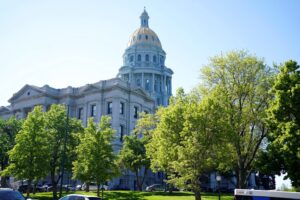Colorado Voter Survey Reveals Major Disapproval to Proposed Alcohol Tax
A newly proposed 200 percent hike in alcohol taxes from Sens. Kevin Priola (D-13th District) and Chris Hansen (D-31st District) has been met with strong opposition from Colorado Voters.
In a newly published survey by Nelson Research, the proposal, SB 24-181, “loses support among all major
demographic subgroups as more information is known about the funding mechanism and impacts on
economy, democratic process, small business/consumers, and overall lack of prioritization of current alcohol tax dollars.” Starting with a 2-to-1 general disapproval of alcohol taxes (48.9% opposed vs. 23.3% approve), the measure only fares worse once voters learn how the bill was structured to get around Taxpayer’s Bill of Rights (TABOR) provisions as well as its effect on Colorado’s economy. Its final disapproval rating is 58% with just 26% in favor.
In addition to the provision itself, voters also rejected the plan to label this tax as a “fee” by 61-21 percent.
This poll is clear and overwhelming evidence that Coloradans reject higher alcohol taxes. We hope that the bill sponsors listen to their constituents.
The survey was conducted from March 25 – March 27, 2024. The survey consisted of 538 registered voters in Colorado. The sample size (n=538) is sufficient to assess voter sentiment within a margin-of-error of +/- 4.2% at a 95% confidence level.
Further polling insights include:
? Opposition to a 200% tax increase: Results when told the bill raises the tax on beer, wine and liquor by
200% – or three times the current tax level. 22.1% In Favor & 66.0% Opposed
? Economic impact: Results when told Senate Bill 24-181 would hurt Colorado’s vibrant tourism
economy as it would cost local restaurants, brew pubs and craft breweries over $25 million in lost retail
sales. 16.6% In Favor & 70.4% Opposed
? Current tax allocation: Results when told the state already collects millions of dollars in alcohol tax
payments, but does not prioritize treatment and recovery services. Respondents were asked if legislators
should prioritize the way they currently spend their alcohol tax dollars instead of requiring more taxes.
65.0% Agree or in favor & 40.7% Opposed
Colorado Voter Survey Reveals Major Disapproval to Proposed Alcohol Tax

 AP Photo/David Zalubowski
AP Photo/David Zalubowski